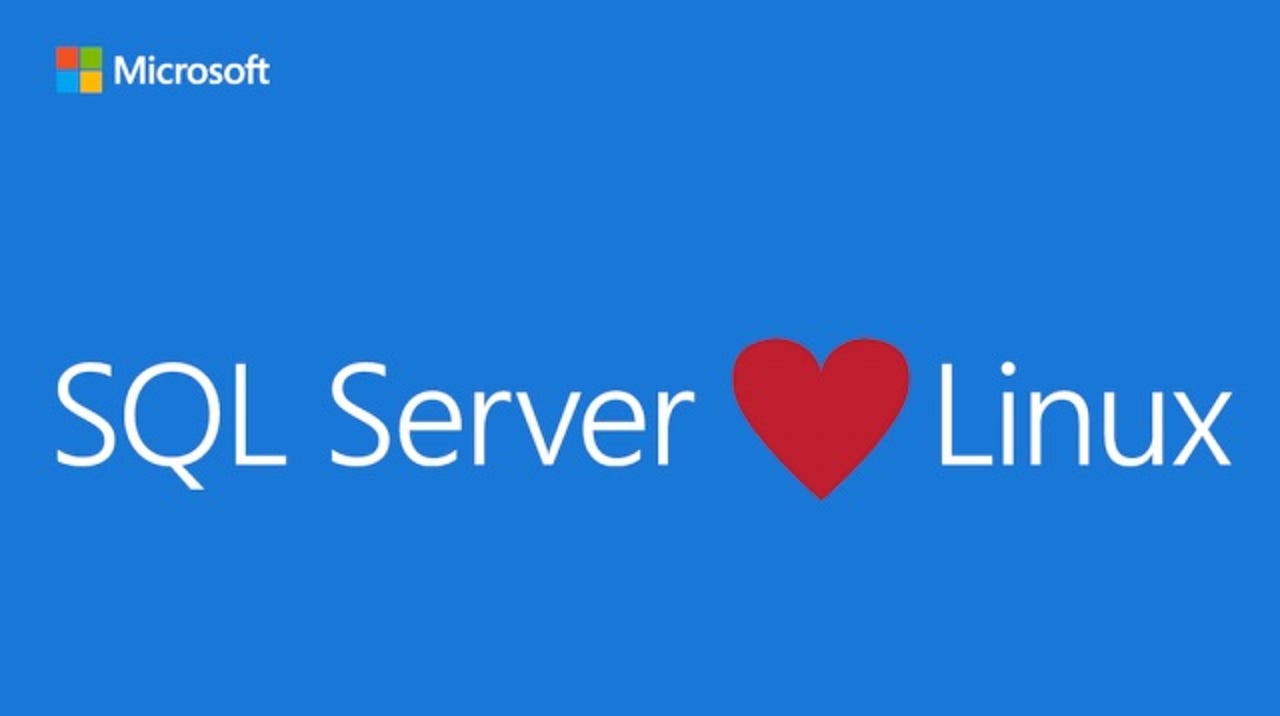Why has SQL Server come to Linux? Windows-only cloud makes no sense

Microsoft porting SQL Server to Linux is not an early April Fool's joke. The company is deadly serious about this move.

Yes, SQL Server and Linux together. No, this is not an early April Fool's joke.
Some people are asking why. After all, with MySQL, MariaDB, postgreSQL, and Oracle Database 12c Linux, there's no shortage of RDBMS servers on Linux.
Part of the reason is simple enough. Scott Guthrie, head of Microsoft's Cloud & Enterprise business, said "This will enable SQL Server to deliver a consistent data platform across Windows Server and Linux, as well as on-premises and cloud."
The more complex answer is that Microsoft's fortune is no longer based on Windows. True, SQL Server will be available on Red Hat Enterprise Linux (RHEL) and Canonical's Ubuntu Linux as a standalone server applications, that's not where it's meant to run. As Ed Bott recently uncovered, Microsoft's new cash cows are Azure and server applications. In particular, "Microsoft Azure is growing rapidly and is reported in the same group as traditional server products (SQL Server is up, Windows Server is down). Collectively, that pair is at the top of the list."
And what operating systems run on Azure? Mark Russinovich, CTO of Microsoft Azure, Microsoft's cloud program, said last fall that open source and Linux make great financial and technical sense for Microsoft. "It's obvious, if we don't support Linux, we'll be Windows only and that's not practical." Then, one in four Azure operating systems instances were Linux. And that number has only been increasing.
For Microsoft to continue to grow as a cloud and services company it must become a Linux company.
And, in particular, Microsoft wants to be a Linux cloud power. Today, Azure is certainly the primary way Microsoft monetizes Linux, so it's only logical that SQL Server would be added to Linux.
Al Gillen, IDC's group vice president, sees this. "By taking this key product to Linux, Microsoft is proving its commitment to being a cross platform solution provider. This gives customers choice and reduces the concerns for lock-in. We would expect this will also accelerate the overall adoption of SQL Server."
Linux fans are cynical as ever about this. One channeled Star Wars' Admiral Ackbar, saying, "It's a trap!"
Enterprise Software
The Linux companies, however, take a far more pragmatic view.
Dustin Kirkland, a member of the Canonical's Ubuntu Product and Strategy team, told me in an interview, "Microsoft has been an amazing partner to Canonical, and continues to look to Ubuntu as the leading edge of all Linux distributions "
Indeed Microsoft and Canonical have gotten along well.
Canonical founder Mark Shuttleworth observed in a statement, "Customers are already taking advantage of Azure Data Lake services on Ubuntu, and now developers will be able to build modern applications that utilize SQL Server's enterprise capabilities." In addition, Microsoft has released HDInsight, Microsoft's big data Hadoop-on-Azure service for Ubuntu Linux and Ubuntu is now part of Microsoft's Azure Stack.
Red Hat is newer to working with Microsoft. But, after years of negotiations, Microsoft and Red Hat made RHEL available on Azure.
Red Hat's President of Products and Technologies, Paul Cormier, certainly sees Microsoft and Red Hat getting along like bosom buddies. "SQL Server's proven enterprise experience and capabilities offer a valuable asset to enterprise Linux customers around the world. We believe our customers will welcome this news and are happy to see Microsoft further increasing its investment in Linux."
Of course, Red Hat has a long standing beef with the other major Linux and DBMS power, Oracle. So Red Hat have another reason to be glad to partner up with Microsoft.
The bottom line for Microsoft though as I'd said before is that today's software development world made it impossible for Microsoft to continue in its proprietary ways. Microsoft is slowly, but surely, become an open-source company.
SQL Server coming to Linux is perhaps Microsoft's most dramatic move to date, but it won't be the last one. Sources tell me that other major Microsoft enterprise server programs will be coming to Linux.
Who knows, we may yet see MS-Linux as a real product rather than a joke.
Related Stories: